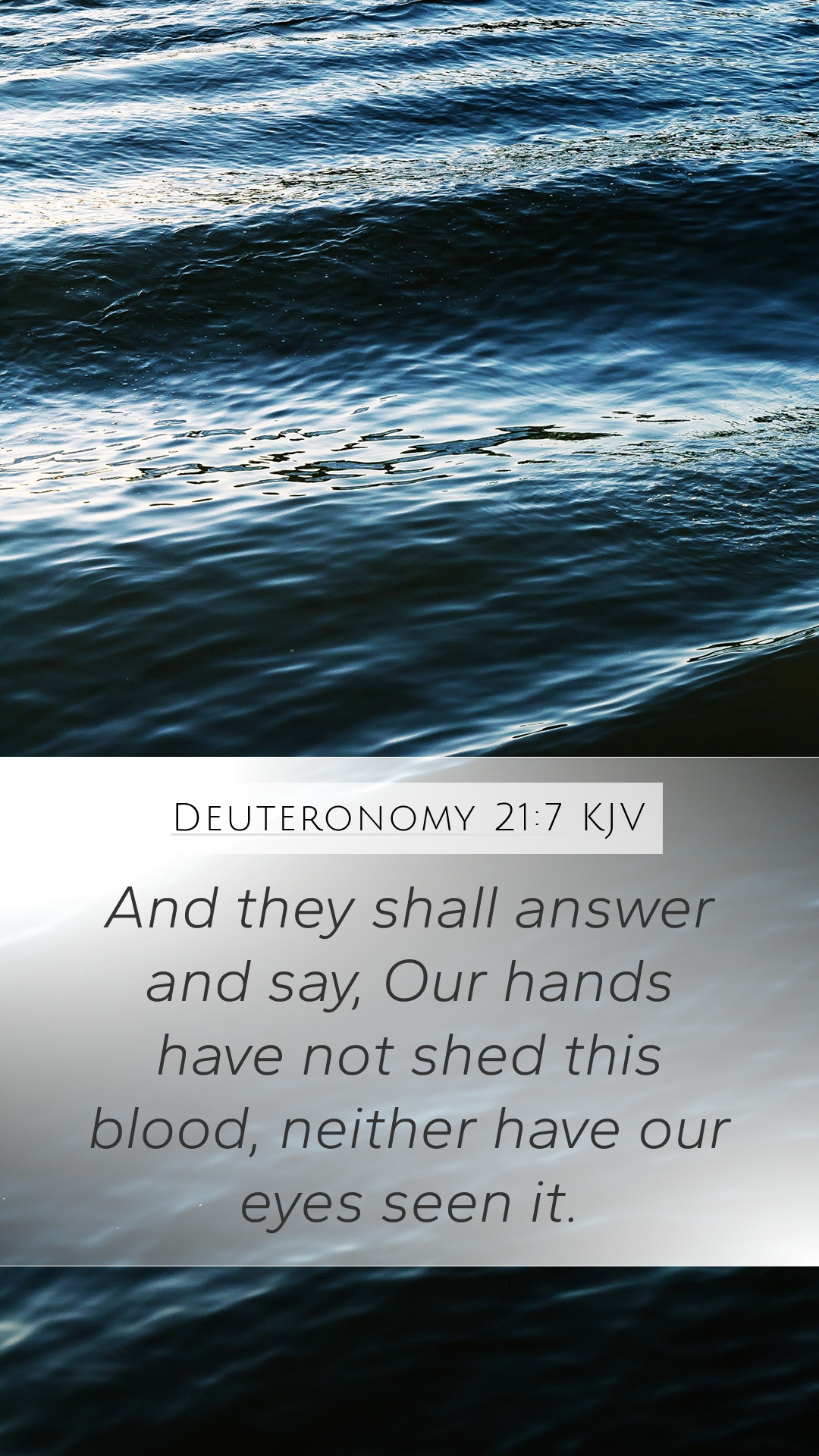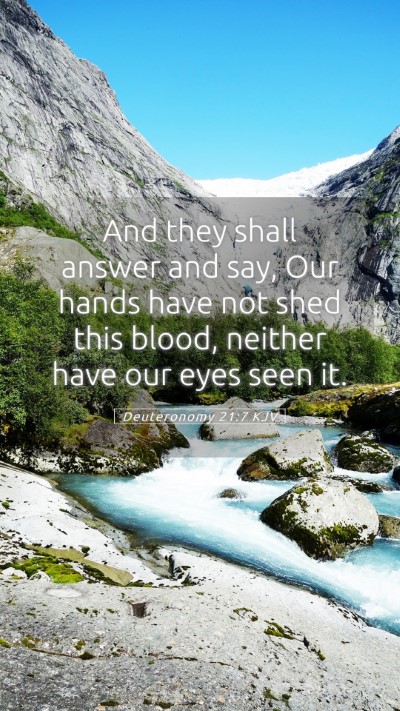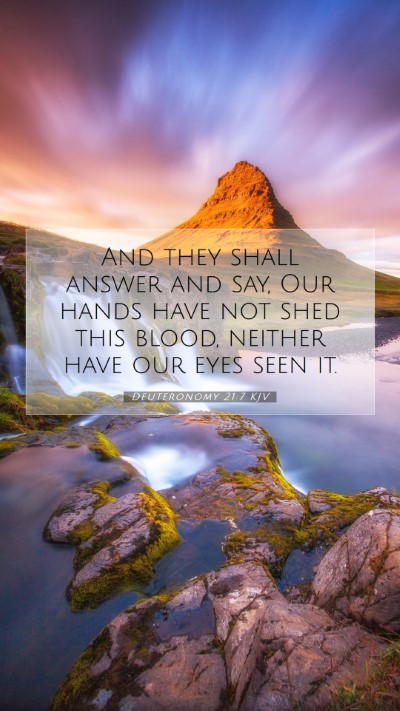Deuteronomy 21:7 Bible Verse Meaning and Commentary
Deuteronomy 21:7 states: "Then they shall answer and say, ‘Our hands have not shed this blood, nor have our eyes seen it.’" This verse speaks to the procedures related to unsolved murders in ancient Israel. Both the literal and symbolic interpretations of this passage provide valuable insights into the significance of justice, guilt, and communal responsibility within the context of biblical law.
Context of Deuteronomy 21:7
This verse is embedded within a larger section that deals with the laws concerning cities of refuge and dealing with unintentional homicide. The Israelites are instructed on how to purify themselves from the guilt of innocent blood when a murder occurs that remains unsolved. The need for innocence to be established is paramount.
Understanding the Exegesis
According to Matthew Henry, the overarching theme of this verse stresses the collective accountability of the community in Israel. The elders' declaration of innocence indicates that while a crime has been committed, there is no direct culpability amongst the innocent members of the community. The emphasis on the community's innocence provides a mechanism for maintaining social order and divine favor.
Albert Barnes elaborates on how the elders' oath serves a dual purpose: it publicly absolves the community while also invoking God's mercy in dealing with the injustice of the unsolved murder. This verse reinforces the idea that the community must actively seek justice and remain untainted by the bloodguilt that might hinder their relationship with God.
From the perspective of Adam Clarke, the act of denying involvement in the shedding of innocent blood signifies the importance of communal guilt as opposed to individual guilt. Clarke notes that this ceremony of declaration not only serves to absolve but also to call for divine intervention and the restoration of peace in the land. The procedural nature of this act illustrates God's expectation for His people to handle justice according to His laws.
Application of This Verse in Bible Study
In modern applications, Deuteronomy 21:7 can be interpreted as a call for communities to take responsibility for the welfare of their members and to seek justice in cases where innocents suffer. This resonates with contemporary discussions about justice systems, accountability, and community ethics.
Bible Study Insights
- Community Responsibility: This verse challenges both individuals and groups to recognize their impact on communal justice.
- The Importance of Innocence: Recognizing innocent blood creates a sense of urgency in addressing wrongs within society.
- God's Justice: The passage reflects the importance of divine justice and mercy, which are pivotal themes in Scripture.
Cross References
- Exodus 21:12-14: Deals with the laws concerning murder and manslaughter, stressing responsibility.
- Numbers 35:33: Outlines the importance of purging the land from bloodguilt.
- Deuteronomy 19:10: Emphasizes the need for clear justice and prevention of wrongful deaths.
Conclusion
The insights derived from Deuteronomy 21:7, as illuminated by public domain commentaries, reveal the layers of meaning within this text. From communal responsibility to divine justice, this verse encourages readers to reflect on the broader implications of guilt, innocence, and justice both in ancient times and modern society.


